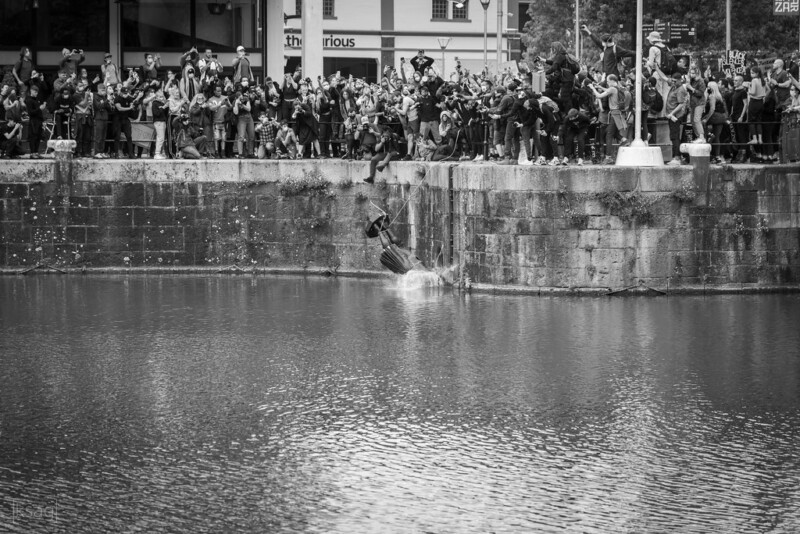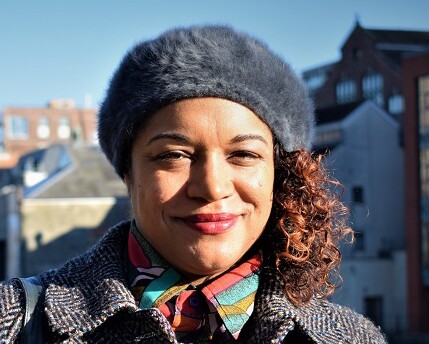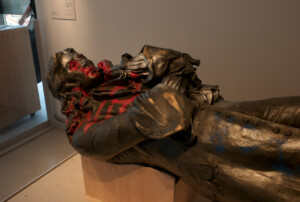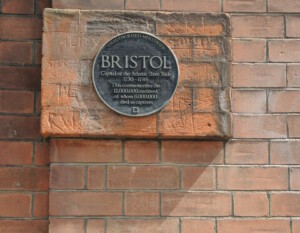Why Bristol Needs Abolition Shed

Share this
In 1999 I was a gallery assistant for the landmark exhibition ‘A Respectable Trade? Bristol and Transatlantic Slavery’, the city’s first real acknowledgment of its connections to the Transatlantic Traffic in Enslaved Africans (TTEA). Attendance was high and so were emotions. When the exhibition closed, a section of it moved to the Industrial Museum, which later became M Shed. The success of the exhibition was never really harnessed, especially in growing understanding and bridging fractured and divided opinion in the city.
Over 20 years later, the Edward Colston statue was toppled, a reparations and atonement motion was passed by Bristol City Council and the Bristol Legacy Group (BLG) commissioned the Project T.R.U.T.H. (Telling, Restoring, Understanding our Tapestry and History) consultation with African heritage communities. There have also been notable independent interventions, including the highly successful CARGO Classrooms, the Decolonising Memory memorial dance and app and an exhibition by Bristol Cathedral uncovering its memorials to enslavers. But there is still an obvious omission: a permanent, dedicated ‘museum’ to tell the story. Why nothing permanent of significance exists to date may be indicative of the old power systems, deliberately or otherwise, that have kept their knee firmly on the neck of change for so long. But Bristol is now in a post-statue-topple reality. Change is possible, closer, more urgent. The world continues to watch and almost everyone is waiting for action. As support and inevitability builds, the question now turns to what form that might take and what its purpose will be.
Alongside longstanding reparations campaigns, the Black Lives Matter movement helped to globally expose the pain, trauma, Afriphobia and ongoing racism experienced by people of African heritage today. This reality needs more than just a laying out of historical facts. Any depiction of the past must be in the context of enabling the intersection of ideas and conscience, that can explain the present and offer a commitment to solve the future, particularly in the realm of racial justice and equity.
The report findings of Project T.R.U.T.H. provide a mandate for a ‘dedicated facility that charts Afrikan history and its connection to the city’. Relabelled as a ‘Story-House’ rather than museum, making this dedicated facility a reality is now on the agenda of the BLG. Any telling of the story will be done in a sensitive way that can empower people of African descent. It will be a place to locate the narrative in pre-enslavement and pre-colonisation, acknowledging and respecting African contributions to global culture and civilization and charting resistance to enslavement and racism. Whilst presenting facts will be important, it cannot be a place of triggering trauma. It is also important that African heritage people are not only centred in the story but that they are centred in curating and telling the story.
The concept of the UnMuseum has been launched by Black South West Network. Initially a digital platform with the longer-term ambition of a physical space, UnMuseum is about valuing and creating alternative cultural collections and content with community-based archivists and cultural producers from minoritised communities.
Perhaps the most vocal of calls in recent years have come from the Abolition Shed Collective. Made up of former Countering Colston campaigners and others and led by historian Mark Steeds (co-author of From Wulfstan to Colston), the collective has been advocating for an Abolition Shed since 2016. Now renamed BEAMI (Bristol Enslavement and Abolition Museum Institute), the group proposes a facility that will tell an international story about enslavement and abolition. A focus would be on Bristolian women reformers such as Hannah More, contributions by working-class Bristolians, visits by African Americans including Frederick Douglass and the countless uprisings by the enslaved Africans themselves. An education facility for all, a core aim is to bring about a better understanding of Bristol’s connection to this global shared history.
Story-House, UnMuseum, Abolition Shed are all possible. Maybe Bristol, in its new-found status as a decolonial epicentre, deserves to have and to offer all these possibilities, so that the goals of societal and systemic change, reparatory justice, racial justice, reconciliation and healing may be understood, accepted and permanent change is achieved.

Cleo Lake is a community engagement professional, researcher and creative artist/producer. She was Lord Mayor of Bristol 2018-2019 and in 2021 was the lead consultant, researcher and report writer for Project T.R.U.T.H. During her term as a Green Party Councillor, she was instrumental in getting a Reparations and Atonement motion passed at Bristol City Council for Bristol’s role in the Transatlantic Traffic in Enslaved Africans.
This article appears in Bristol 650: Essays on the Future of Bristol, a book bringing together essays from over 30 contributors, addressing some of the challenges the city faces and sharing ideas about how we might meet them. From dealing with the past, the future of social care, culture and housing to building a city of aspiration, the book looks to promote learning about the future of Bristol and encourage new ideas to come forward.
Free copies of Bristol 650: Essays on the Future of Bristol will be available at selected Festival of the Future City events in October 2023, or you can find articles featured in the book at bristolideas.co.uk/bristol650book.

